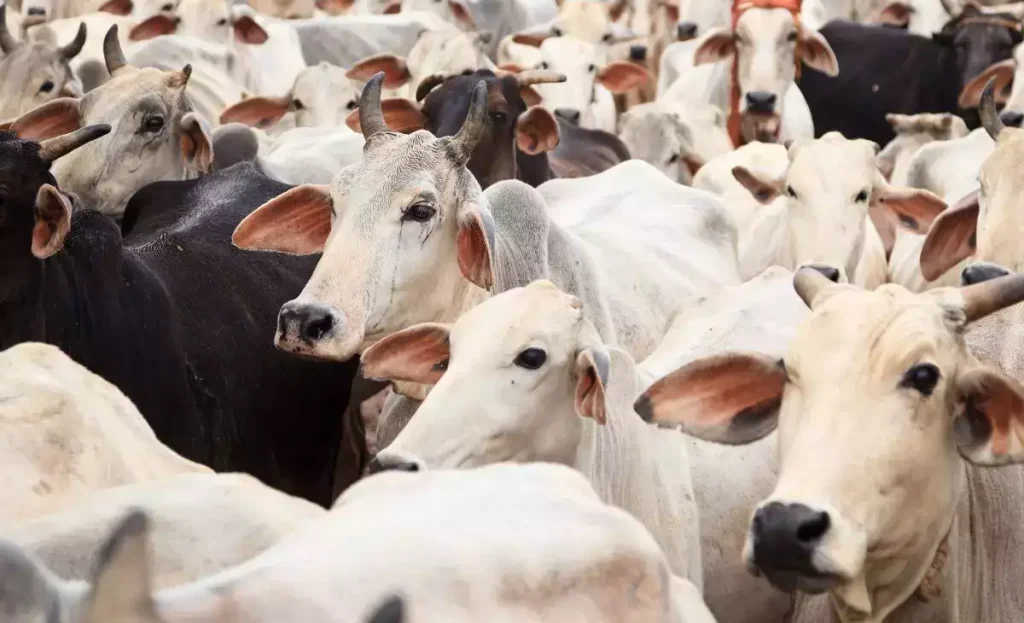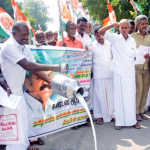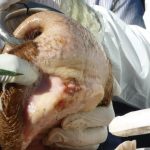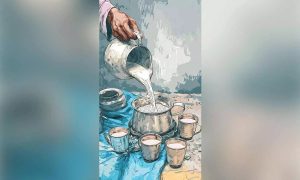
India’s dairy farmers are facing a battle to sustain their cattle. Rising costs and climate change have forced many to sell livestock at distress rates, threatening milk production and potentially disrupting global dairy markets.
India’s dairy farms in crisis
Climate change is the crisis that keeps on giving. India’s dairy industry is now facing severe problems due to a nationwide fodder shortage fueled by climate change, rising costs, and urbanization. Farmers struggle to feed their cattle, forcing them to sell at distress rates.
With fodder prices nearly tripling in some regions, India’s status as the world’s largest milk producer is under threat, risking disruption to both domestic and global dairy markets. Shrinking cultivation areas due to urbanization and the shift to commercial crops has further exacerbated the problem.
The fodder shortage is now recognized at the highest levels of government, with a reported deficit of 11.24%-32% for green fodder and 23% for dry fodder. In a country with over 500 million livestock, the situation has far-reaching implications. If the crisis continues, it could disrupt global dairy markets, potentially increasing dairy imports to India and pushing up international prices.
To mitigate this, experts suggest increasing land for fodder cultivation and adopting sustainable agricultural practices, such as hydroponics, Cheena Kapoor writes for Devex.
For farmers like Sheshrao Jadhav, solutions can’t come soon enough. He’s already sold 120 cattle from his property, which has a capacity for 500 dairy cows. With the income from his agricultural farm barely sustaining his dairy operation, he’s contemplating giving up completely.
“We grow sugarcane and cotton and use whatever money can be spared in the upkeep of the dairy farm, but how long can this continue?” he asks.
Partnerships and compliance
Chuck Pope, a former contracting officer with two decades of experience at USAID, stressed the importance of partnership and strict compliance for winning grants. Partner, partner, partner, and compliance, compliance, compliance, was his answer during a recent Devex Pro event.
“If you look at what the big players are doing, they’re all JVing up,” said Pope, who retired from USAID in 2022 and now runs his consulting company — Pope International. “Everybody is teaming up, and everybody is acquiring somebody. There’s a reason why that is being done.”
Pope explained that compliance is critical: Noncompliant applications are often dismissed without consideration. USAID’s criteria for funding, which include being “presently responsible” and capable of managing U.S. funds responsibly, make strict adherence to guidelines a must.
Looking ahead to the U.S. election, Pope noted that changes at USAID are inevitable, regardless of who wins. He expects shifts in leadership and anticipates that USAID will continue to respond to global dynamics, including geopolitical challenges posed by China, Russia, North Korea, and Iran.
UK aid watchdog seeks direction
U.K. aid watchdog Independent Commission for Aid Impact is currently without a boss after the country’s general election in July delayed the appointment of a successor to the departed Tamsyn Barton.
ICAI’s recent reports have included issues such as humanitarian relief to Gaza and Afghanistan, aid for refugee hotels within the U.K., and funding for global health research. Public input is being sought to prioritize efforts under the new Labour government.
Promising malaria vaccine for pregnancy
A new malaria vaccine candidate has shown encouraging results, offering long-lasting protection for women of childbearing age, including during pregnancy. In a Phase 2 trial conducted in Mali, women who received Sanaria’s PfSPZ vaccine were safeguarded from malaria for at least two years without the need for booster shots.
The vaccine also proved effective and safe for those who became pregnant after vaccination, benefiting both mothers and their newborns. Sanaria is preparing to test the vaccine in pregnant women by early 2025 and is also developing a third-generation vaccine, PfSPZ-LARC2, using gene-editing technology to boost its effectiveness.
What it takes to land a WHO job
As the largest global health organization, the World Health Organization is a top employer for public health professionals. Landing a job there is highly competitive. Success requires technical and behavioral skills and a solid understanding of WHO’s recruitment process, including crafting compelling CVs and excelling in competency-based interviews.
WHO emphasizes aligning skills with job requirements and demonstrates expertise clearly in applications. With a structured recruitment process aimed at transparency and fairness, WHO seeks individuals who can drive its mission forward in tackling global health challenges.

















